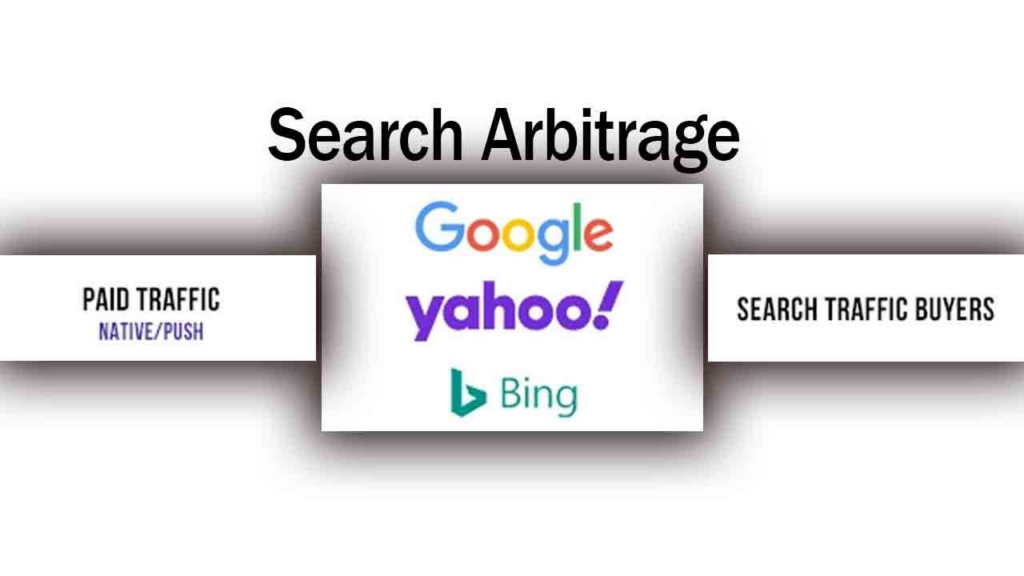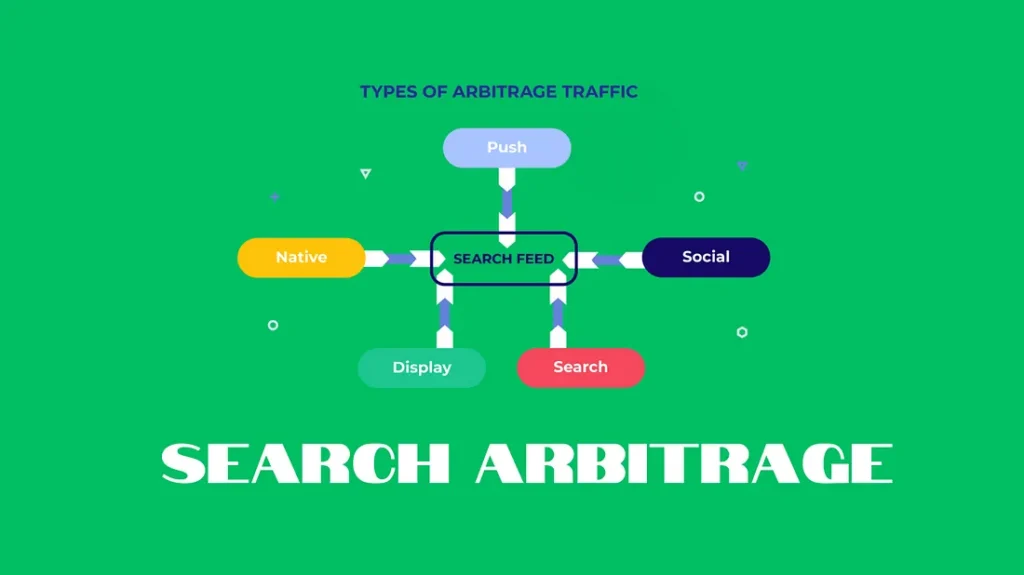In the fast-paced world of online advertising, staying ahead of the competition is crucial. One of the methods that companies use to drive traffic to their websites and increase conversions is through search arbitrage. But what exactly is search arbitrage, and how can you leverage it to maximize your online advertising efforts? Let’s dive into the world of search arbitrage and explore how you can use it to your advantage.
Table of Contents
Understanding Search Arbitrage
Search arbitrage is a practice where advertisers purchase traffic from one platform, such as a search engine or social media site, and then direct that traffic to a different platform where they can generate revenue, typically through ad clicks or conversions. This strategy relies on the difference in cost per click (CPC) between the two platforms, allowing advertisers to profit from the margin.
Picture owning a website centered around a trending keyword such as “travel bargains.” You might opt to procure ads for this term at a reduced rate and steer the traffic to your site, showcasing advertisements relevant to travel deals or merchandise. Each click on these ads could translate into a commission or earnings from the advertisers whose ads feature on your platform. The essence lies in crafting a profit differential between the expenses incurred in acquiring the traffic and the income derived from the advertisements on your website.

Key Components of Search Arbitrage
Successful search arbitrage relies on several key components:
1. Keyword Research and Selection
Conduct thorough keyword research to identify high-value keywords with relatively low competition. By targeting these keywords strategically, you can minimize advertising costs while maximizing visibility and engagement.
2. Ad Copy Optimization
Craft compelling ad copy that not only captures the attention of your target audience but also aligns with their search intent. Focus on creating ads that are relevant, persuasive, and tailored to the specific keywords you are targeting.
3. Landing Page Optimization
Ensure that your landing pages are optimized for conversion. Design them to be user-friendly, visually appealing, and closely aligned with ad messaging. Incorporate clear calls-to-action (CTAs) and minimize any friction points that may impede the user journey.
4. Bid Management
Implement a strategic bidding strategy to maximize the efficiency of your advertising budget. Monitor your campaign performance closely and adjust your bids accordingly to maintain a favorable balance between cost and performance.

Benefits of Search Arbitrage
1. Enhanced Return on Investment (ROI)
One of the primary benefits of search arbitrage is its potential to deliver a higher return on investment compared to traditional advertising methods. By strategically purchasing low-cost traffic and directing it to high-converting destinations, advertisers can optimize their spending and achieve greater efficiency in their marketing efforts. This enhanced ROI enables advertisers to generate more revenue from their advertising budgets, maximizing the impact of their marketing campaigns.
2. Scalability and Flexibility
Search arbitrage offers unparalleled scalability and flexibility, allowing advertisers to adjust their campaigns in real-time to meet changing market conditions and consumer preferences. With the ability to quickly scale up or down their advertising spend based on performance metrics and business objectives, advertisers can adapt their strategies to capitalize on emerging opportunities or address challenges effectively. This agility enables advertisers to stay ahead of the competition and maintain a competitive edge in the dynamic digital landscape.
3. Geographic Targeting
Another advantage of search arbitrage is its ability to target specific geographic locations, allowing advertisers to tailor their campaigns to reach audiences in different regions or markets. Whether targeting customers in a specific city, state, or country, advertisers can leverage geographic targeting options to deliver relevant ads to users based on their location. This enables advertisers to focus their advertising efforts on high-value markets or areas with the greatest potential for growth, maximizing the effectiveness of their campaigns and driving better results.
This content is sourced from Youtube: View more.

4. Insights and Analytics
Search arbitrage provides advertisers with valuable insights and analytics that can inform strategic decision-making and drive continuous improvement. By analyzing performance metrics such as click-through rate (CTR), conversion rate, and return on investment (ROI), advertisers can gain actionable insights into campaign performance and audience behavior. These insights enable advertisers to identify trends, patterns, and opportunities for optimization, allowing them to refine their strategies and maximize the effectiveness of their advertising campaigns.
5. Competitive Advantage
In today’s competitive digital landscape, gaining a competitive advantage is crucial for success. Search arbitrage provides advertisers with a unique opportunity to differentiate themselves from competitors and capture market share more effectively. By leveraging innovative strategies and tactics, advertisers can outmaneuver competitors and establish themselves as leaders in their industry. This competitive advantage enables advertisers to attract more customers, increase brand awareness, and drive sustained growth and profitability over time.
Challenges of Search Arbitrage
While search arbitrage can be a lucrative strategy, it also comes with its own set of challenges. One of the primary obstacles is the need for precise targeting and optimization to ensure profitability. Advertisers must carefully monitor their campaigns, adjust bidding strategies, and continuously test different approaches to maximize their returns.
Another challenge of search arbitrage is the potential for click fraud and low-quality traffic. Advertisers must remain vigilant and implement robust fraud detection measures to prevent fraudulent clicks and ensure that their advertising budget is spent effectively.

6 Best Practices for Search Arbitrage
To effectively leverage search arbitrage, consider the following best practices:
1. Diversify Your Traffic Sources
While Google Ads remains a dominant force in online advertising, diversifying your traffic sources can help spread risk and maximize reach. In addition to Bing Ads, Facebook Ads, and native advertising networks, consider exploring emerging platforms and niche networks relevant to your target audience. By casting a wider net across multiple channels, you can tap into new audiences and opportunities while reducing dependency on any single platform.
2. Thorough Keyword Research
One of the foundational pillars of a successful search arbitrage strategy is meticulous keyword research. This involves delving deep into the nuances of various keywords to pinpoint those that promise high returns while resonating with your advertising objectives. Leveraging tools like Google Keyword Planner or SEMrush empowers advertisers to sift through vast pools of data, identifying lucrative keywords with minimal competition. By understanding the search behavior of your target audience and selecting keywords judiciously, you can pave the way for a robust and effective campaign.
3. Crafting Optimized Landing Pages
The efficacy of a search arbitrage campaign heavily relies on the synergy between keyword intent and landing page relevance. Upon acquiring traffic, directing users to optimized landing pages tailored to their search intent becomes paramount. These landing pages should not only be aesthetically pleasing but also intuitive and user-friendly, ensuring a seamless navigation experience. Incorporating compelling calls-to-action further enhances engagement, guiding visitors towards desired actions. By aligning landing page content with the expectations set by the corresponding keywords, advertisers can cultivate a cohesive and persuasive user journey, maximizing conversion potential.

4. Monitor Performance Metrics
Beyond tracking basic performance metrics like click-through rate (CTR) and conversion rate, delve deeper into data analytics to gain valuable insights into user behavior and campaign effectiveness. Evaluate metrics such as bounce rate, time on page, and return on ad spend (ROAS) to assess the quality of traffic and identify areas for improvement. By analyzing a comprehensive set of performance metrics, you can make informed decisions and optimize your search arbitrage campaigns for maximum impact.
5. Stay Compliant with Policies
Adhere to the policies and guidelines set forth by advertising platforms to ensure compliance and avoid potential penalties or account suspensions. Familiarize yourself with the rules governing ad content, landing pages, and promotional practices to maintain a positive relationship with the platforms.
6. Test and Iterate
Embrace a culture of continuous testing and iteration to stay ahead of the curve in search arbitrage. Experiment with different ad formats, messaging strategies, and targeting options to uncover what resonates best with your audience. A/B test various elements such as headlines, images, and calls-to-action to identify high-performing combinations and refine your approach over time. By constantly refining and optimizing your campaigns, you can stay competitive and drive better results in the ever-evolving landscape of online advertising.

Conclusion
In conclusion, search arbitrage is a powerful strategy that can help advertisers maximize their online advertising efforts and drive more revenue. By understanding the fundamentals of search arbitrage, overcoming its challenges, and implementing best practices, advertisers can unlock new opportunities for growth and success in the digital landscape.
FAQs
How can advertisers overcome the challenges associated with search arbitrage?
Advertisers can overcome the challenges of search arbitrage by implementing robust fraud detection measures, optimizing campaign targeting and ad placements, and staying informed about industry trends and best practices. Additionally, continuous monitoring, testing, and iteration can help advertisers adapt their strategies and optimize campaign performance over time.
What are the best practices for maximizing the effectiveness of search arbitrage campaigns?
Best practices for search arbitrage include diversifying traffic sources, conducting thorough keyword research, optimizing landing pages, monitoring performance metrics, staying compliant with platform policies, and embracing a culture of testing and iteration. Implementing these practices can help advertisers drive better results and stay competitive in the online advertising landscape.
What are the benefits of implementing search arbitrage in online advertising?
Search arbitrage offers enhanced return on investment (ROI), scalability, flexibility, geographic targeting options, and valuable insights through analytics. It provides advertisers with a competitive advantage, enabling them to drive revenue growth and capture market share effectively.
Becoming a publisher with Bluefriday is straightforward. Begin displaying ads and earning revenue immediately.







